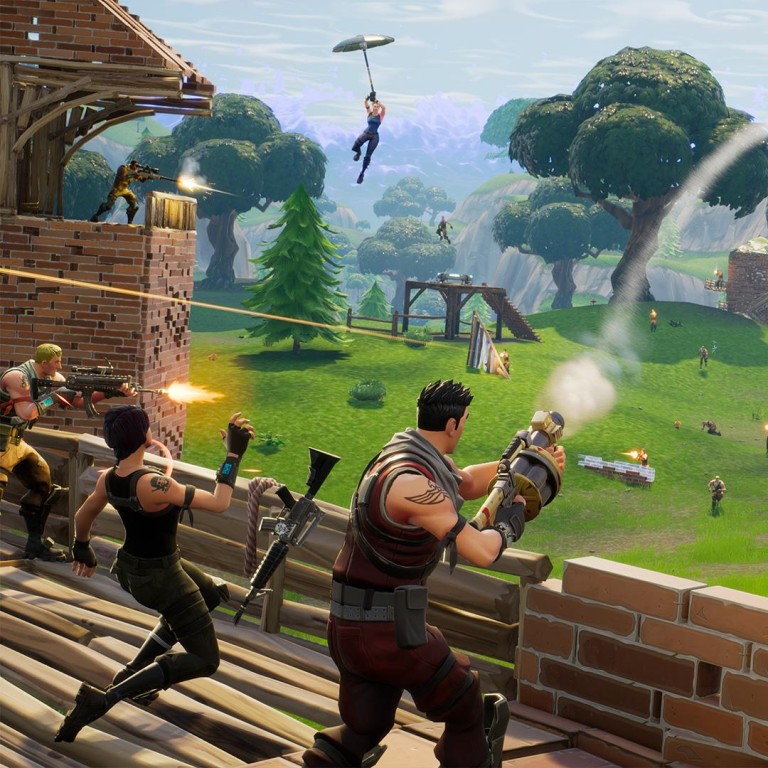
Four reasons why Fortnite hasn’t taken off in China... yet
No clones, no hackers and no hype
Fortnite has taken the West by storm, but it’s been awfully quiet in China ahead of its launch.
Meanwhile, a French player celebrated a goal in the World Cup final by doing the “loser” dance from Fortnite.

We here at Abacus are puzzled by this phenomenon… or lack thereof. So we consulted the internet and spoke to some industry watchers. And here’s what we found.
1) Red tape
Watch this video and tell me if you see any difference between FortCraft and Fortnite. (The capitalisation in the name feels like the biggest difference to me, mostly because my editor is really picky about this.)
They added that the game was actually smooth to play and more compatible with lower-spec devices. So it seemed like it could give Fortnite a run for its money.
But the game later disappeared from App Store and has yet to return. We reached out to NetEase to find out why, but received no comment at publication time. (We’ll update this story if we hear back from them.)
“There were two entities in the government that were responsible for giving out [gaming] licenses. But now these two entities have merged. Since then, there’s been a suspension of giving out licenses,” Wong said.
“It started becoming a problem this March,” Wong added, “There are a lot of developers and publishers waiting to get their games released… a lot of developers are almost broke and out of business because of this.”
2) Chinese gamers like realistic shooters
We won our first PUBG Mobile chicken dinner
While Tencent has doled out millions of dollars in investing and marketing Fortnite, there’s still no telling if Chinese gamers will take a liking to the game at this point.
But Wong said these concerns will likely go away when Fortnite are officially available in China.
“I think Fortnite will do well in China. There’s no reason for it not to,” he said. “Building games like Minecraft and My Time At Portia have many fans. Fortnite will find its community,” he added.
3) Timing is key
Wong also said that Chinese companies were too busy making PUBG clones over the past year to notice the next big thing.
“Chinese companies put a lot of resources in making PUBG clones. But then Fortnite became popular very fast,” he said.

Let’s dial back a bit and lay out the timeline.
But Daniel Ahmad, ananalyst at Niko Partners, told us that while this strategy worked out for NetEase, it did not for Tencent.
“The answer for Tencent [not to clone Fortnite] is fairly simple. Tencent launched its own battle royale game called Glorious Mission which was essentially PUBG on mobile back at the end of last year,” he said.
“The game started off strong but failed to gain traction, especially as PUBG Mobile released a couple of months later.”
This time, with Fortnite, the landscape completely changed. Tencent quickly announced it would publish Fortnite -- it owns 40% of Epic Games.
And Fortnite Mobile was quick to arrive, which left companies no opportunity to cash in on demand.
After all, people downloaded Knives Out because they wanted to play PUBG on their phones but couldn’t find it. But this time, if people wanted Fortnite on mobile, they could just download… Fortnite on mobile.
4) Lawsuits!
Wong added that another explanation to the lack of Fortnite clones could have been that companies are worried by all the lawsuits around PUBG and Fortnite.
(Awkwardly, Tencent has a stake in games from both companies.)
Still, Wong doesn’t think that will stop anyone.
“I still expect there to be a lot of clones based on Fortnite -- but we’ll probably see them in the next three months,” he said.
China’s biggest game is adding a battle royale mode
For more insights into China tech, sign up for our tech newsletters, subscribe to our Inside China Tech podcast, and download the comprehensive 2019 China Internet Report. Also roam China Tech City, an award-winning interactive digital map at our sister site Abacus.
For more insights into China tech, sign up for our tech newsletters, subscribe to our Inside China Tech podcast, and download the comprehensive 2019 China Internet Report. Also roam China Tech City, an award-winning interactive digital map at our sister site Abacus.

